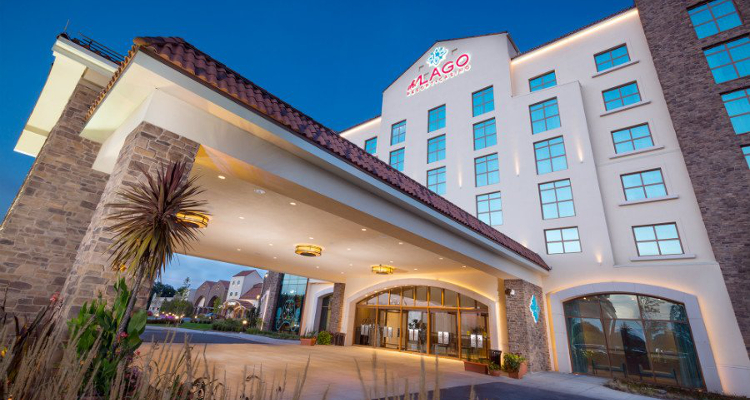In upstate New York, the Del Lago Resort and Casino is reportedly asking lawmakers for a better tax deal in order offset lower than expected revenues it believes are down to increased and unfair competition from nearby tribal operations.
According to a Tuesday report from the Democrat and Chronicle newspaper, the Del Lago Resort and Casino opened in February of 2017 but recorded overall revenues of only $147 million during its first full year in business. This figure was purportedly 44% lower than had been expected and has forced the facility to seek assistance from the state legislature and New York Governor Andrew Cuomo.
“I think we need some help at this point and what the future holds, time will tell,” Tom Wilmot, Co-Chairman for the Del Lago Resort and Casino, reportedly told the newspaper. “We’re paying the bills [but] long term it isn’t going to be sustainable without some help. We’re very flexible. [We] just need some kind of relief. We’re just not hitting the numbers.”
The $440 million Del Lago Resort and Casino was authorized in November of 2013 after New York voters approved a referendum that altered the state’s constitution in order to allow for the building of up to seven Las Vegas-style non-aboriginal casinos. It was hoped that the opening of the facility, which is located near the town of Tyre between the cities of Syracuse and Rochester, would help to boost tourism around the eastern state’s Finger Lakes region thanks to its 205-room hotel and a gaming floor with 75 gaming tables and a ten-table poker room.
However, the Del Lago Resort and Casino reportedly sits only about 55 miles from the Yellow Brick Road Casino owned by the Oneida Indian Nation while the federally-recognized tribe’s giant Turning Stone Resort Casino sits a further 15 miles distant near the town of Verona. To purportedly make matters worse, the Seneca Nation of Indians’ Seneca Buffalo Creek Casino is located some 112 miles to the west in downtown Buffalo with this tribe moreover responsible for the state’s Seneca Allegany Resort and Casino and Seneca Niagara Resort and Casino.
The Democrat and Chronicle reported that the Del Lago Resort and Casino is required to pay a 37% state tax on all slot revenues as well as a 10% duty on takings from its gaming tables. By comparison, the slot charge for the Oneida Indian Nation stands at only 27% with the tribe moreover exempt from any table games duties.
In addition, the newspaper reported that the Del Lago Resort and Casino has alleged that the Seneca Nation of Indians is paying no gaming tax at all due the federally-recognized tribe’s long-running dispute with the state over a new gaming compact.
“The Seneca Nation [of Indians] stopped making payments to both New York and to the local governments last year,” Del Lago Resort and Casino spokesperson Steven Greenberg reportedly told the Democrat and Chronicle. “What is it doing with that newfound windfall? Using more than $50 million to provide additional promotions and incentives, particularly in the Rochester area, to lure customers from the Del Lago [Resort and Casino] and it is working. All the Del Lago [Resort and Casino] is looking for is a fair and competitive marketplace.”
For its part, the Seneca Nation of Indians has disputed this claim and told the newspaper that the Del Lago Resort and Casino had ‘unrealistic expectations’ when it applied for a gaming license.
“The projections haven’t materialized, falling short by some 44%, and now the Del Lago [Resort and Casino] is turning to the state to fund its failure to meet its own goals,” Philip Pantano, a spokesperson for the Seneca Nation of Indians, reportedly told the Democrat and Chronicle. “That’s its fault, not ours.”



